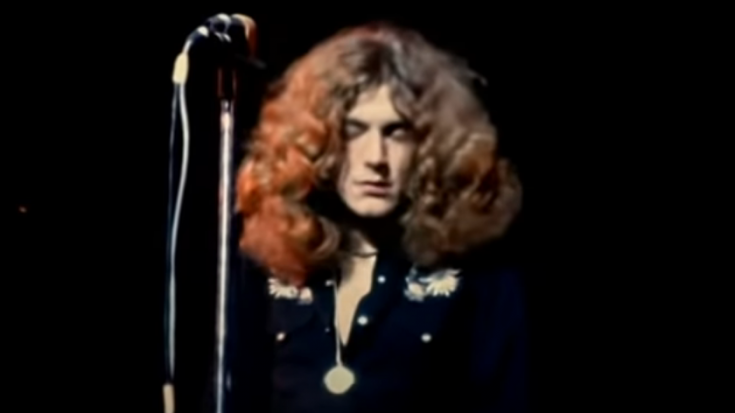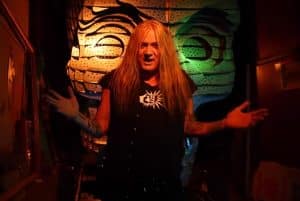5 Led Zeppelin Songs That Makes Us Question Their Legendary Status

via Led Zeppelin / Youtube
The first time Jimmy Page, Robert Plant, John Paul Jones, and John Bonham played was during a rehearsal at a studio in Lisle Street within London’s West End on August 12th, 1968.
They first played “Train Kept A-Rollin”, and, as Jones would later say, they knew they had something incredible. It must have been written by the hands of destiny that the song they first played was a 1951 track composed by Tiny Bradshaw and co-produced by Ahmet Ertegun.
Ertegun’s Atlantic Records would sign the band who later called themselves Led Zeppelin and the four-piece hard rock pioneers would create rock classics one after another. Ertegun’s Rock and Roll Hall of Fame would gather the remaining three members (with Bonham’s son Jason on drums) for their induction in 1995, and the band would play “Train Kept A-Rollin”.
It’s nothing but magical, and the word “magical” isn’t exactly what one would say when they first hear Bonzo’s hard-hitting drums playing musical hopscotch with Page’s guitar and Jones’ bass as Page’s iconic vocals soar above the whole thing. No, it’s not magical, it’s powerful.
But, even the best can’t have everything. A legendary career of 12 years, with nine studio albums that re-shaped rock, and just over a hundred songs that left rock fans craving for more, surely there are some that don’t sound powerful. Or magical.
Here are five of them.
Royal Orleans (1976)
The track featured on Led Zeppelin’s 1976 album “Presence” involves Plant playfully teasing Jones about a memorable evening in New Orleans. The anecdote goes as follows: Jones brought a friend who was a drag queen back to his hotel room, and their shared marijuana smoking session accidentally led to a fire breaking out in the room.
However, Plant’s lyrics tend to veer towards a homophobic stance. He repeatedly uses the term “Whiskers” throughout the song. Furthermore, his lyrics appear to express growing disapproval of socializing with individuals who cross-dress, as seen in lines like “As I step out / Strut down with my sweetheart / She shouldn’t imitate Barry White.”
The song became objectionable due to its overt and unfiltered homophobic content. The redeeming aspect is its brief duration, lasting merely three minutes.
Walter’s Walk (1982)
Including songs from “Coda” on this list almost is somehow sacrilegious. But as a post-disbandment album and their first compilation album, “Coda” was comprised of leftover and previously unreleased material that Page finds alright. The distinction lies in the abundance of impressive unreleased tracks Led Zeppelin had during 1975, a contrast to the situation in the early 1980s.
The track “Walter’s Walk” had already been rejected once for “Physical Graffiti.” Subsequently, this outtake from the “Houses of the Holy” sessions was enhanced with fresh guitar work from Page and updated vocals from Plant. The outcome is a jumbled amalgamation of old and new Zeppelin elements that fail to coalesce into a cohesive final form.
There exists a debate regarding whether the vocals for this track from “Coda” were created simultaneously with the music. This uncertainty might clarify why the composition lacks a sense of unity. Oftentimes, there are underlying reasons for tracks being excluded from a band’s main albums. This particular piece serves as a comprehensive illustration of that reasoning.
The Crunge (1973)
The song commences on a promising note, showcasing John Bonham’s drumming expertise with a rhythm that melds elements of R&B and his jazz inspirations. John Paul Jones contributes a groovy bass line that aptly complements the tribute to James Brown.
But a tribute from Led Zeppelin is only a tribute. The ill-advised song lacks the fluid and funky rhythms that Brown can effortlessly conjure. The mixing decision places Jones’ synth at the forefront, overshadowing Plant’s nonsensical yet somewhat Brown-esque lyrics and Jimmy Page’s unremarkable guitar performance.
The groove fails to achieve a compelling strength, and Plant grapples with capturing anything deemed truly memorable. There’s a mild hint of humor with the line “Has anybody seen the bridge?” but this remains the sole redeeming quality of the composition.
Hats Off To (Roy) Harper (1970)
It’s hard to believe that the studio album that blasted to a blistering start with “Immigrant Song” would dial it too low at the end with “Hats Off To (Roy) Harper”. Though it is evidently an impromptu piece that they off-handedly lumped with other songs, it doesn’t hold a candle to their other better knockoffs.
Rather than aiming to captivate their audience, the song exudes the sensation of the band amusing themselves. Page employs a mix of standard acoustic blues tunes on bottleneck guitar for this Led Zeppelin III track, complemented by intriguing studio effects. Plant’s vocals are intentionally manipulated to make it sound as if it was coming off an old radio.
However, these efforts fail to conceal the truth that the piece lacks substance, and it should have been cut away. “Hats Off” leaves an unpleasant aftertaste, particularly following the poignant beauty that characterizes the majority of Led Zeppelin III.
Sick Again (1975)
Now this is a song that will probably drown Led Zeppelin with a hashtag-powered cancel frenzy.
Led Zeppelin has always been known to be involved with the groupie scene of the 1970s. Deeply involved (we’re looking at you, Page). “Sick Again” is a gross, grimy love letter to that sordid affair, and the lyrics are just as gross as you think.
The artistry of the Bonham-Page musical partnership, which was on display for this song, can’t ever drape over Plant singing “Said you dug me since you were thirteen / Then you giggle as you heave and sigh.”
Plant had since acknowledged that he composed the lyrics out of empathy for Led Zeppelin’s underage groupies. Regardless of his potential involvement with teenage fans, the content of the “Sick Again” lyrics still evokes an uneasy listening experience.
















